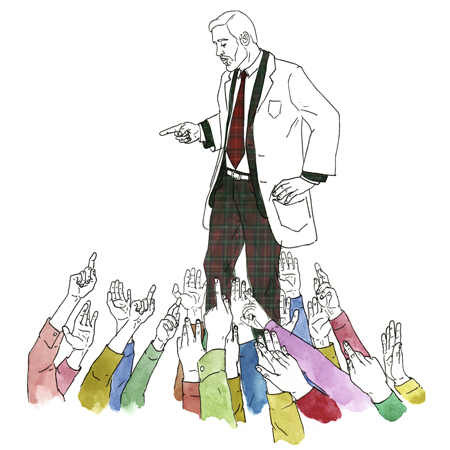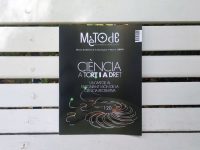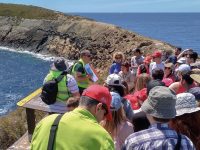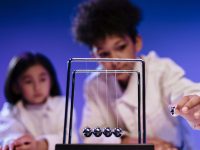
Illustration: Moisés Mahiques
I feel that I am making a subtle but profound shift in my approach to popularising science. And after over 15 years dedicated to this, I think it is worth noting. No, I am not becoming a YouTube creator. In fact, it is not a matter of format, of whether to use social networks in one way or another, to be more or less succinct, or whether to deal with denser or more popular topics. It is about the role that scientific information has in my stories, reporting, or media work. Let me explain.
As I will explain in a book to be published in May, it all started one Sunday morning on the radio show A vivir on Cadena SER, where I am a regular contributor. When we opened the microphones to questions from the audience, a father called and said, «Hello, I am calling because I have been hearing for a long time that stem cells are very promising for diseases like diabetes. I have a teenage son with type 1 diabetes. I know science is slow, but he has a lot of life ahead of him, and maybe someday he can benefit from it. My question is, what is the state of diabetes research, and how far do you think it will go to benefit someone like my son?»
Well, I’ll be damned. Suddenly, I was embarrassed to realise that popularisers who are in love with science seem to reach intellectual ecstasy with the operation of CRISPR tools, the intricacies of physics, the inner workings of science or what Science or Nature publishes, and we tend to dispatch such a question with an answer of the style «We do not know, because science does indeed advance slowly and one should not give false expectations». That is a poor answer. Such a clear question from a concerned parent should be the subject of a full report, even if the approach makes researchers uncomfortable and does not allow for an accurate answer. Questions like that are the ones that society and its citizens have, and sometimes we do not contemplate them enough because we assume that our fundamental mission as disseminators is to communicate what scientists do. What I saw that day is that we are actually (or at least I was at the time) closer to scientists and their ideas than to people and their problems.
«Disseminators are closer to scientists and their ideas than to people and their problems»
Obviously, we must continue to track down laboratories to discover the surprises that science offers us. As a «brain thief», this has been my hallmark: to get as deep as possible into the heart of science in order to bring to light new debates or knowledge. Long live science driven by curiosity, of course, and long live this work of communicating scientific discoveries to citizens in a simple and enjoyable way. But we cannot (or I cannot) do just that. If we want science to play a truly relevant social role, we must take the opposite path and respond with science to the questions and problems of individuals and society. We must treat science as a tool, not as the protagonist.
Some of you may consider it a self-evident truth. It may be. Or maybe I do not know how to express how deep this change in my work is going to be. I am not talking about answering trivia. I am talking – and it is more than just talking, because I decided that this would be the focus of the third season of El cazador de cerebros – about always taking a doubt or a social problem as the starting point and using science to answer it. Actually, it is similar to the approach of our colleagues from #CienciaenelParlamento, who actually helped us in some episodes.
It was not easy, for several reasons. Perhaps the most important is that science does not always have clear answers. The episode on «evidence-based education» was a pain because apart from saying that some educational strategies are not scientifically supported (which does not necessarily mean that they do not work), the final feeling is that scientific empiricism provides information that is still not very relevant. In the episode about plastics, for example, science was great for making a good diagnosis of the problem, informing which plastics are more dangerous and which are less so, which rivers bring in more plastics on a global scale, whether microplastics accumulate in marine organisms or not… But when it came to proposing solutions, the scientists we asked were lost, because that is not the question they ask themselves. They have a very good control of their laboratories and the data from their machines, and they tackle questions that can be answered experimentally, but when something becomes more complex they feel overwhelmed and avoid speculation. That is wrong on their part, too.
«If we want science to play a relevant social role, we must respond with science to the questions and problems of individuals and society»
The other difficult thing was that, by consciously taking the focus off science and onto the problem at hand, I realised that details such as whether CRISPR works one way or another, or whether a certain study was done with a certain methodology, become irrelevant. Obviously we must take them into account to know if they are solid data or not, but we should not make people dizzy with the minutiae or interiorities of science. Because just as one can drive without knowing how an engine works, it is not necessary at all to explain how genetic editing works or how stem cells are reprogrammed. You do not ask the person who fixes your washing machine about which wrenches he uses, unless you are a geek. The protagonist of my stories, and the starting point that motivates me to write them, is no longer Shin’ya Yamanaka, but that son with diabetes. And on another note, the existence of an ongoing clinical trial with humans becomes infinitely more relevant than a paper with a new method to differentiate cells, no matter how high the impact factor. I care about social impact, not academic impact. And going even further, some questions like «how to be happier» or «how to fight sexism», which are actually less scientific in the methodological sense, may be more important than the latest discoveries in neuroscience or astrophysics.
Given all this, I do not know if I am communicating science or carrying out a different mission. I know that, as much as I, a a science enthusiast, am very interested in the implications of the discovery of gravitational waves, this will not be the focus of an episode of El cazador de cerebros. It is a strange feeling… as if after so many years of unconditional admiration, I am now separating myself a little from scientists. I do not know if this shift in focus is good or bad, temporary or permanent, more or less abrupt. But it is what I want to explore at the moment.





